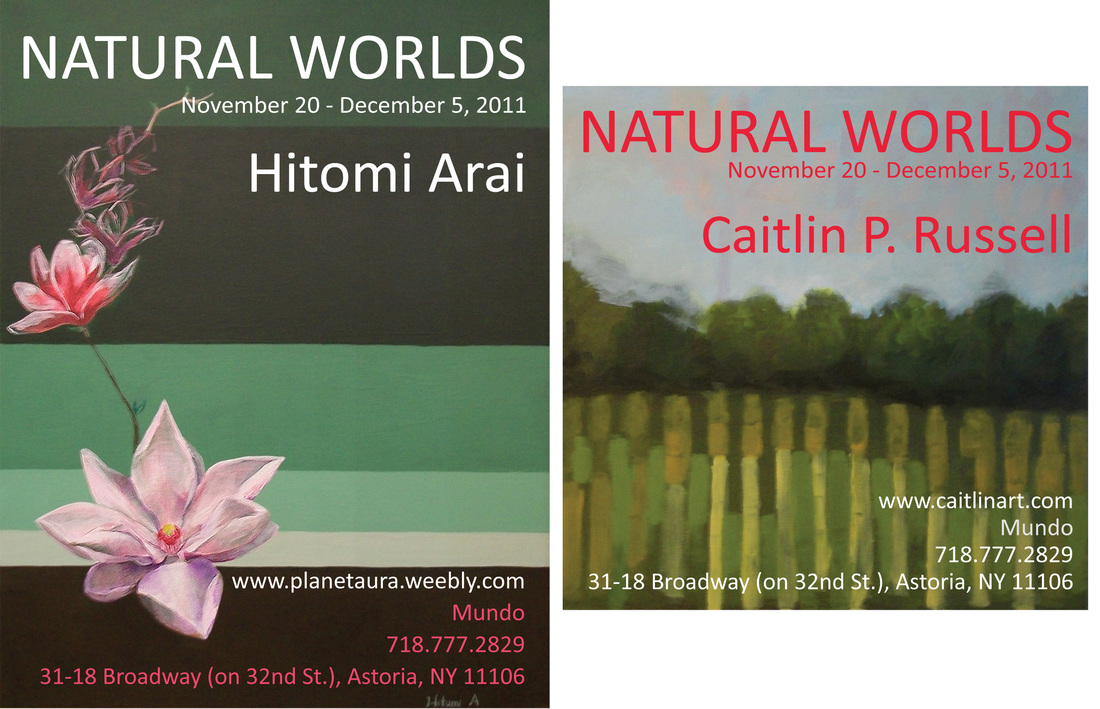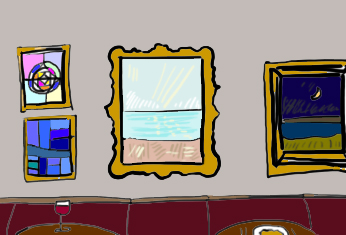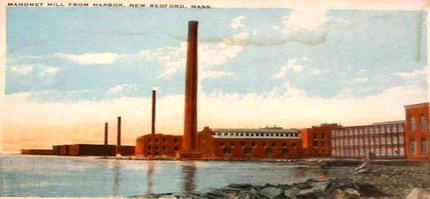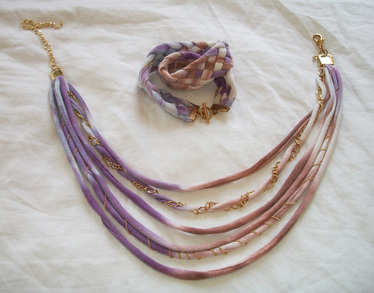|
Hitomi Arai and I will be showing our paintings at Mundo Restaurant. Please come eat good food and check out our Art!
Hitomi's website: www.planetaura.weebly.com Mundo's website: www.mundoastoria.com There won't be an official opening but feel free to go check it out any time- see Mundo's website for hours. Thanks! Hitomi and I will be showing our artwork at the Restaurant Mundo, in Astoria, from mid-November through mid-December! I will be showing my landscape paintings and will (hopefully) have a new large painting in time for the show. For the exact dates please contact me or Mundo in November. Below is a link to Mundo's website; they have amazing food! http://www.mundoastoria.com/
And here is Hitomi's website:http://planetaura.weebly.com/index.html Along with most other US industries, textile production has largely moved to factories in foreign countries. To a lesser extent design is also moving overseas, which I think we will see more and more. One of my textile designer friends told me that when she started her job a few years ago she was responsible for putting files into repeat and making colorways. However, before the files came to her, they were cleaned in the company's office in China where pay was dramatically less, and normal working hours were 8am- 8pm. In the last year it was decided that their China office would also be responsible for putting the designs into repeat. This means that my friend's only design-related responsibility is now to make colorways. Supposedly the workers in the China office do not know enough about american tastes and color trends to make colorways. This seems naive to me. Who says americans have a monopoly on color sense? How difficult is it to subscribe to a few trend/ color forecasting services, spend some time browsing fashion websites on the internet, and develop a sense of contemporary american taste?
When all aspects of design, from concept through production, are moved out of the country, what is left behind? This past weekend was Labor Day weekend and I spent it in Eastern Massachusetts which was once home to many busy mills. Today New Bedford, MA is home to one major clothing manufacturer, menswear designer Joseph Abboud. Abandoned mills throughout New England are being slowly and partially filled with small businesses and outlet shops and in some cases, artists' studios. On the train ride back to NYC it occurred to me that one thing that can not be outsourced is fine art. Even if our economy collapses because corporations have sold all our jobs to other countries leaving us as indebted consumers, and skills and knowledge are lost by the former working class, there will still remain the basic human need of expression. I think the thing that can save the middle class is a new localized economy based on artisanry and quality. Among other reasons, people love art because it allows us to glimpse the inner motivation and feeling of the person who created it. In an artfully crafted object one can sense an imbued sense of life and considered thought. This is hard to find in a mass-produced, hastily made, inexpensive item. If we stop letting capitalists tell us what we want and when, we will realize we have much more time and money than we thought. Maybe it's a good thing that we can fill our abandoned mills with artists and small local businesses. The other day I was lamenting long work hours with a friend in the textile industry and declared that we should bring back cottage industry. Tiny businesses would build up community-based economies and we would once again know where and how the things we own were made. This may seem like wishful thinking or it may seem familiar what with all the DIY and Etsy fervor, but either way it's worth considering.
I went to Prague last week for vacation and saw something that I had seen in Italy 10 years ago: shops selling jewelry and other crafts with the crafts-person sitting there in the store making more things to sell. What a revelation to any unfortunate soul who has ever had to work in retail; the worst part of retail is how mind-numbingly dull it is to stand in a store for hours with nothing to occupy the time other than rude customers and arranging and rearranging merchandise. I think I would actually like retail if I could make the things being sold. In the back of my mind I hear a voice from somewhere in my past warning, "You can't make a living working with your hands." I don't know who said it to me and if they were referring to farming, woodworking, or art, but it stuck with me. However, I've come to the conclusion that creating things for a living would be more satisfying to me than many other options. So I think I will become more industrious in my cottage-sized 1 bedroom apartment in Queens. Local economies worked in the past and maybe they could work again. I'm not saying we should all live in little huts without electricity, but that maybe the global economy is not benefiting everyone so much as a few uber-rich would like us to believe. If we could relearn the value of good quality over cheap prices and instant gratification we might be able to ease back into a society that enabled us all to contribute in meaningful ways. And tired shop keepers would no longer give in to windex-ing the display cases a tenth time to try to pass the day. |
about the blog:I've added this blog to my website to explore my various interests in art, craft, design, and sustainability and find the places where they overlap. Archives
November 2011
Categories |




 RSS Feed
RSS Feed